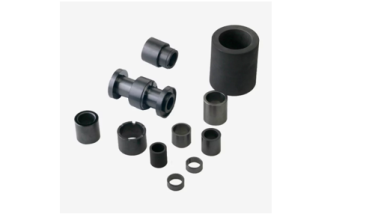9 Benefits Of Operations Management Software

An Operations Management Software (OMS), is used by any business’s operations team to plan, manage and integrate tasks. It can also be used for monitoring, collaboration, and monitoring. The team can work together on one software, reducing production bottlenecks while increasing operational efficiency. It also helps to digitize the daily workflow tasks of the production team, such as project manager, producer, planner, supervisor, and supervisor.
To be successful in competitive markets, businesses must find and eliminate inefficiencies in their processes, manage all aspects of operations, and establish a framework that allows for high performance controls. They can quickly find and implement solutions to complicated production problems with an OMS.
A well-executed process management system can reduce delivery times and improve quality, which gives the company a competitive edge in the industry. Field Technologies Online says that digitization systems like the OMS (Order/Operations Management Systems), can help you surpass 51% of businesses who still rely on manual processes to produce goods or services.
Let’s not forget the importance and vitality of OMS.
1. A Business Tool that is All-inclusive
OMS integrates all operations tasks into one software, so you won’t need any other tools once you have started using it. FinnlySport’s facility scheduling software, for example, allows sports facilities to plan multiple activities with integrated payment procedures. This reduces the need to manually manage many events. It also helps to schedule staff tasks and programs in accordance with overall operational goals.
It evaluates business practices from multiple angles and identifies any delays in tasks to ensure everything runs smoothly. The system allows your team to access multiple operations-related tools in one place, which helps reduce wasted time and improves productivity.
2. Consolidates data and automates recurring processes
OMS is a single operation software that consolidates data to make it easier for decision-making. It can be used by operations managers to monitor and identify production capacity and refine the distribution cycle and production system for improved customer satisfaction and positive ROI.
It can be used by managers to automate repetitive tasks or to assign labor-intensive tasks into a program. This will allow them to save time and improve business processes. Automation allows businesses to concentrate on the important tasks at hand and minimize human error.
Automating business operations should be done using a program that is tailored to your industry and business. It should be intuitive and easy to use.
3. Remote Access to Files & Folders
Remote access to all files and folders allows employees to work remotely and also contribute digitally via OMS. This specialized feature enabled 43% of US citizens the ability to work remotely, according to a New York Times poll.
To make remote work more efficient, your company will need to adopt OMS. Instead, move your data to a cloud server. This will increase productivity, file security, accessibility, and speed up decision making.
4. Increased accountability
Your employees will be more organized if they work on software than paper. They can track their progress and create time stamps. The success rate is 95% higher when a person makes an appointment with an accountability partner. This is how OMS tracks everyone’s activities while they work on the software.
Adopting an operations program is easier than pairing employees with accountability partners. A document management center that is accessible to all employees allows for task creation and delegation. This fosters positive accountability, as everyone’s work is openly visible. This results in higher productivity.
5. Employee retention is higher
Software for operations management reduces the cost of hiring the right candidate and increases employee retention.
Urban Bound reports that businesses that have streamlined onboarding procedures increase their new hire retention rate of 50% and 54% productivity.
You can increase employee retention and productivity by using operations management software in your company.
6. Competitive Advantage
Adopting advanced systems is one way to be competitive in the market. However, 84% of small businesses still use manual processes. Small business owners who adopt operations management software can quickly gain an edge.
It will simplify your work and improve customer satisfaction. It will help you to create efficient order processing, payment systems, and scheduling, especially for online orders. It also improves customer service than your competitors. This gives you an advantage in the market.
7. Business Analysis
Operations management software integrates data from many aspects. This allows you to analyze your operational efficiency and eliminate redundant tasks. You can also generate business reports that will help your team make informed decisions.
Analysis reports can be used to measure production capacity and compare it with demand. This will allow you to determine if your production is sufficient or not enough. This will allow you to check your inventory levels and backlogs. The OMS can be used to help you choose the best inventory method for your company.
It allows you to compare high-performing strategies against weak ones and takes the necessary steps on time. This will help you allocate your budget to specific tasks or functions. You may need to add resources to a system that isn’t performing well or pull resources from another process.
8. Cross-App Integration
OMS can be used to easily integrate data via cross-app. OMS also allows for frictionless cross-company data sharing.
OMS allows you to communicate between programs and platforms in addition to external data sharing. It also reduces human error by requiring very few manual tasks.
9. Intuitive Design
The OMS program you choose must be easy to use and understand. Your team should be able make changes whenever necessary to ensure smooth work processes.
The software can be customized to meet your specific operational requirements. It is easy to incorporate customizations.
The Higgs Domino Rp event brings excitement to fans. The Live from the Arena: The Showdown Experience immerses viewers in the action. Atmosphere and audience interaction add to the thrill. Broadcasting the event ensures everyone can enjoy the show.
Conclusion
An Operations Management Software (or simply Operation Management Software) is a digital tool that maximizes your company’s efficiency and productivity. It can be used to increase the quality and speed of your delivery times and improve customer service.
A comprehensive business tool that consolidates data and automates repetitive tasks. It also allows remote access to files and folders. This allows for better accountability, encourages employee retention, gives the firm a competitive edge, and aids in business analysis.
It also allows cross-app integration, allowing data to be sent to external parties seamlessly. The intuitive design allows you to personalize the user experience.
Operation management software gives your business a digital edge and allows you to compete in your market.





